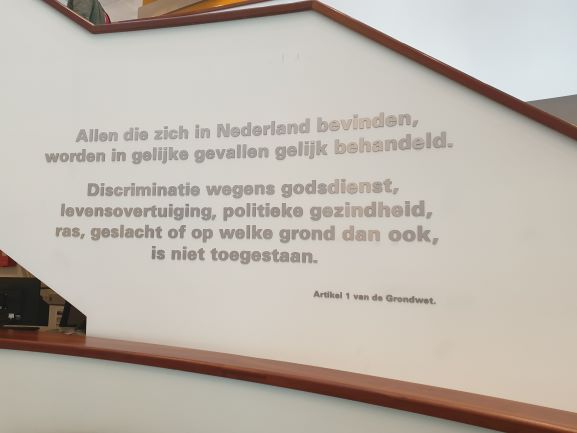
Development of diversity perspectives in the Netherlands’ Public Service in the period 2008-2018
Joep Hofhuis & Anouk van Drunen.
The success of diversity management is dependent on how employees experience cultural diversity in their daily work. In 2008, Joep Hofhuis examined these diversity perspectives among employees of the Netherlands’ public service. In 2018, the Ministry of Internal Affairs and Kingdom Relations (BZK) asked him to continue this study to find out how the perspectives have changed over the past ten years.
A digital survey was distributed among government employees, asking which positive and negative outcomes of cultural diversity they experience in their workplace. A comparison was then made between answers that were given in 2008 (1617 respondents, in 7 organizations) and 2018 (2024 respondents in 14 organizations).
The results show that, in 2018, government employees experience more positive effect of cultural diversity than ten years before. Especially the added value of diversity for productivity (the business case) is recognized more. The respondents felt that diversity increased their team’s problem solving abilities, and that it helps them connect with different cultural groups in Dutch society. Additionally, compared to 2008, they also experience that diversity leads to more changes in norms and values in the workplace.
Finally, the study shows that a strong diversity climate – an organizational climate characterized by openness to diversity – may enhance positive outcomes of diversity, whereas transformational leadership – a leadership style based on inspiring and motivating employees – may reduce diversity resistance.
Please find the full report (in Dutch) here.
 Hofhuis, J., & van Drunen, A. (2019). De ontwikkeling van de beeldvorming rondom culturele diversiteit bij de Rijksoverheid in de periode 2008-2018. Rotterdam: Erasmus University Rotterdam, Erasmus Research Centre for Media, Communication, and Culture (ERMeCC).
Hofhuis, J., & van Drunen, A. (2019). De ontwikkeling van de beeldvorming rondom culturele diversiteit bij de Rijksoverheid in de periode 2008-2018. Rotterdam: Erasmus University Rotterdam, Erasmus Research Centre for Media, Communication, and Culture (ERMeCC).







